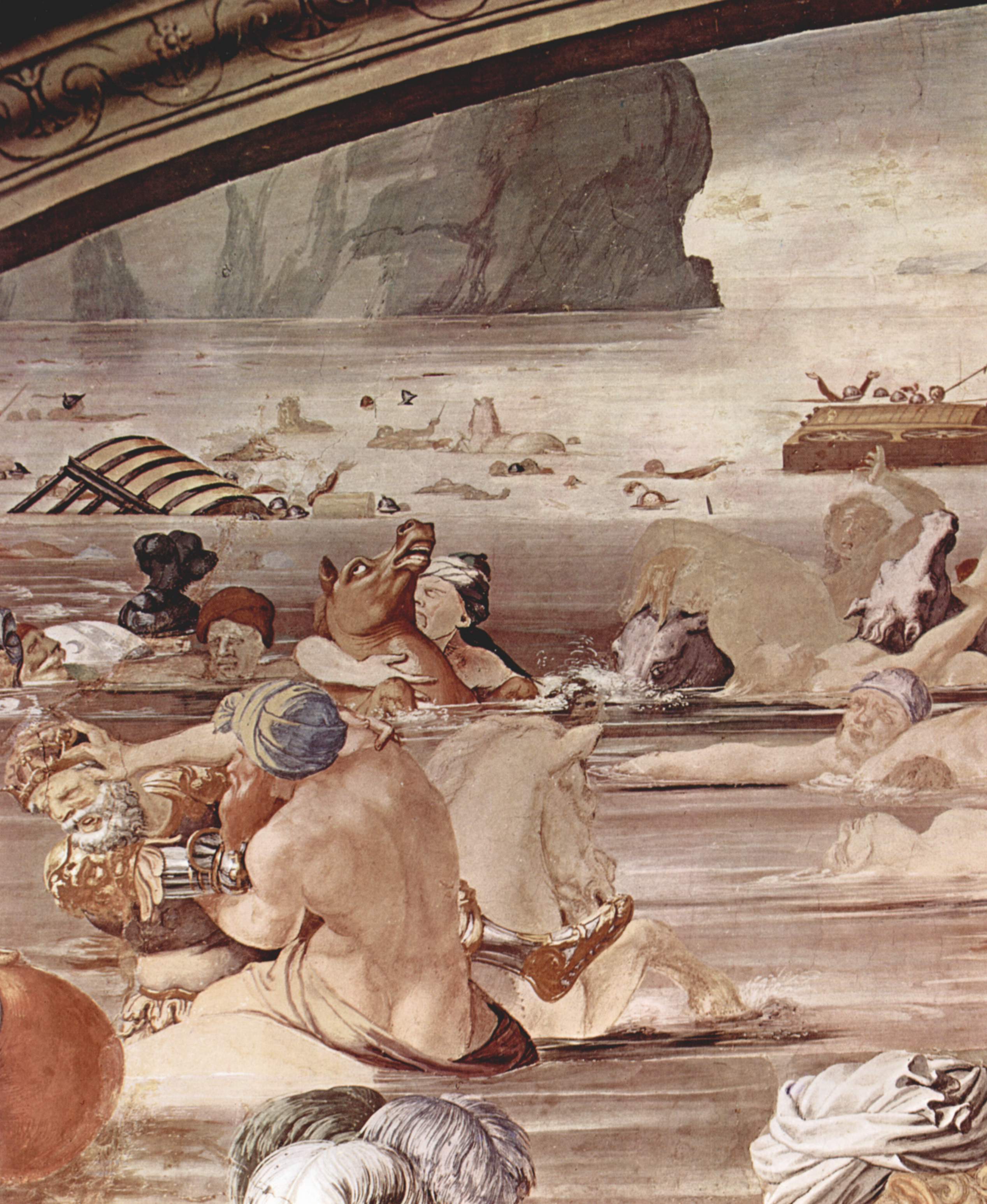Old Testament
God detours the people of Israel to the Red Sea. He has been leading them with a pillar of cloud in the day and a pillar of fire in the night. The Israelites are on their way with the Egyptian treasure. Now that things are going well, God makes trouble again. He says,
Order the Israelites to turn back and camp by Pi-hahiroth between Migdol and the sea. Camp there along the share, across from Baal-aephon. Then Pharaoh will think, "The Israelites are confused. They are trapped in the wilderness!" And once again I will harden Pharaoh's heart, and he will chase after you. I have planned this in order to display my glory through Pharaoh and his whole army. After this, the Egyptians will know that I am the Lord.
 Pharaoh and his army pursue the Israelites, but, once again, the blame actually belongs to God. When Pharaoh's army approaches the camp of the Hebrews, Moses parts Red Sea.
Pharaoh and his army pursue the Israelites, but, once again, the blame actually belongs to God. When Pharaoh's army approaches the camp of the Hebrews, Moses parts Red Sea.the Lord opened up a path through the water with a strong east wind. The wind blew all that night, turning the seabed into dry land. So the people of Israel walked through the middle of the sea on dry ground, with walls of water on each side!I like the juxtaposition of a naturalistic explanation (God created the path with a strong east wind) with the miraculous (the walls of water on either side).
Of course, Pharaoh and his men ride into the sea, Moses raised his hand, and the waters rushed back into place. God killed more people just so that he could show his power.
The rest of today's reading consists of a song of deliverance that includes the line
Who is like you among the gods, O LordOn the one hand, this line comes from poetry and so should not necessarily be taken literally. On the other hand, it implies that God was seen by the Hebrews as the greatest God among many.
New Testament
Today's reading focuses on the strained relationship between Jesus and the Jewish priests and elders. First, the priests and elders challenge Jesus' authority. Next, Jesus tells a story that implies that God will reward people they look down upon before he rewards them. Third, Jesus compares the Jewish priests and elders to a bunch of evil farmers who kill the servants and even the son of the rightful owner of the farm. Hmm, I wonder what that is a thinly veiled reference to...
The author of Matthew really goes out of his way to imply that the Jewish teachers lack the sense to see the obvious truth of Jesus' divinity. One would expect that the most traditional and powerful members of the Jewish community would resist the teachings of an interloper, especially when those teachings imply that their teachings are wrong. On the other hand, it seems telling that the most educated members of society were the ones that Jesus could not convince.
Psalms and Proverbs
Today's psalm, in short: God, I have been so devoted, please do not let me suffer. Same old, same old.
From Proverbs,
There are six things the Lord hates --The first two lines amuse me.
no, seven things he detests:
haughty eyes,
a lying tongue,
hands that kill the innocent,
a heart that plots evil,
feet that race to do wrong,
a false witness who pours out lies,
a person who sows discord in a family.

No comments:
Post a Comment